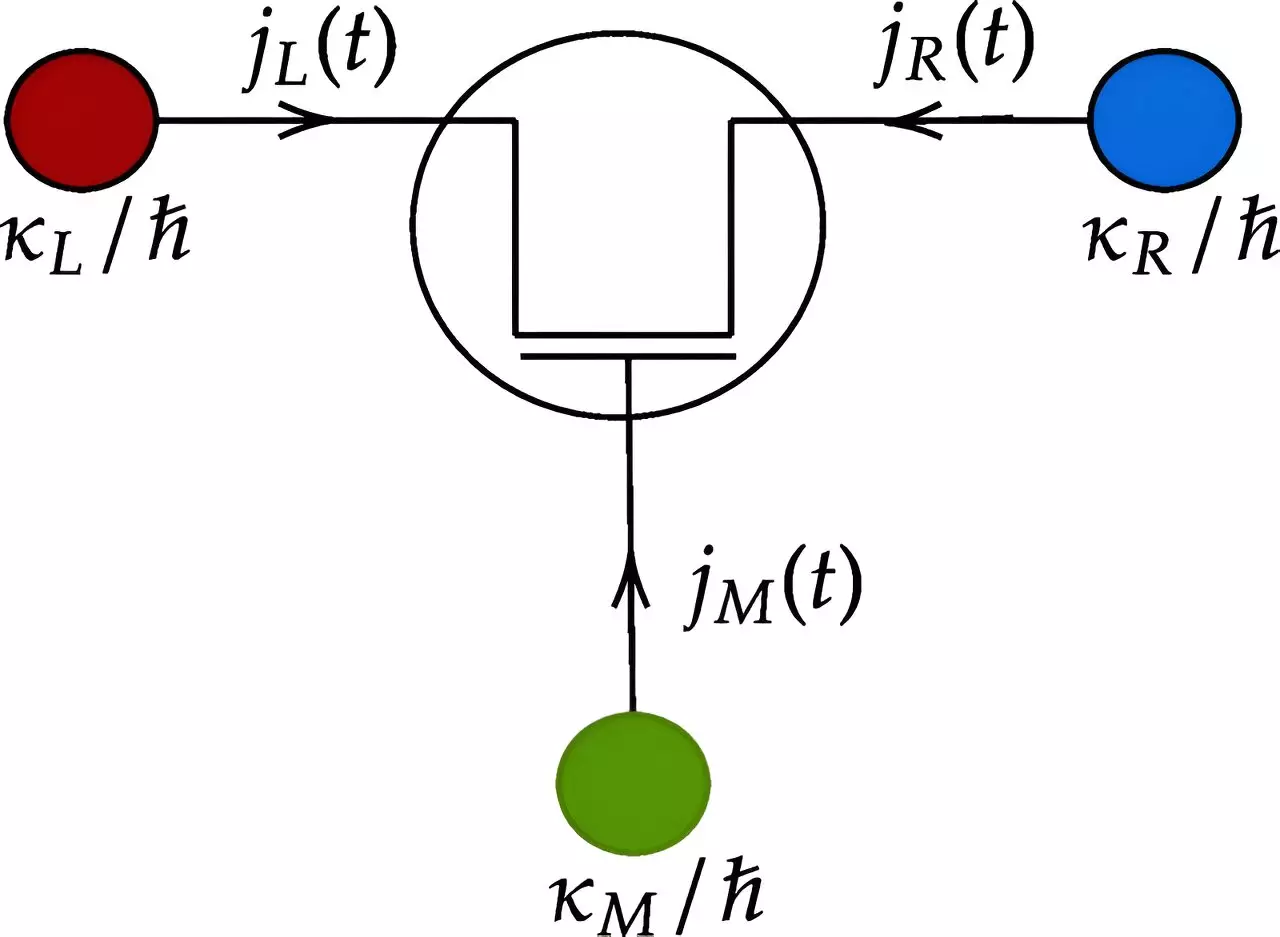The field of quantum technology has been rapidly evolving, with researchers actively working towards manipulating quantum systems and materials to achieve significant breakthroughs in energy management and conservation. As part of this ongoing effort, a cutting-edge platform dedicated to creating quantum thermal machines has emerged, aiming to unlock the full potential of quantum technologies in advanced energy solutions. One specific area of focus within this domain is the development of quantum thermal transistors, sophisticated apparatuses designed for the precision management of heat transfer. However, several challenges arise within the realm of cooling and environmental regulation, highlighting the need for avant-garde solutions.
The current cooling infrastructures, particularly those catering to diverse qubit technologies such as quantum computers, pose significant challenges in achieving optimal quantum device performance. These challenges intensify the call for innovative solutions that can overcome the limitations of existing cooling methods. To address this issue, the scientific community has now turned its attention towards the importance of quantum measurements and control in the design of quantum thermal machines for advanced energy management. These interventions play a crucial role in preserving the inherent quantum properties of devices while preventing their transition into a classical state induced by environmental interactions, commonly referred to as decoherence.
In response to the critical issue of potential noise introduction by measurement probes, an advanced theoretical framework known as the conditioned quantum thermal transistor has been introduced. This paradigm undergoes continuous monitoring orchestrated by its environmental milieu, allowing for a comprehensive understanding of the nuanced dynamics involved. To comprehend and analyze this behavior, an elaborate stochastic noise model, mirroring the small-signal model employed in classical transistors, has been devised. This systematic approach enhances our understanding of the complex dynamics, contributing to the refinement and optimization of quantum thermal machine architectures.
Characterizing Environmental Influences
As devices continue to undergo miniaturization, their susceptibility to environmental influences assumes greater significance. Intrinsic fluctuations stemming from thermal noise, coupled with extraneous perturbations such as measurements and feedback control, significantly impact the performance of small-scale devices. Therefore, preemptively characterizing stochastic behavior becomes invaluable, providing insights into the operational limitations embedded within these devices. Such characterization enables researchers to comprehend the dynamic alterations within the system and explore opportunities for improvement.
While the maturation of functional quantum thermal transistors remains at a nascent stage, ongoing refinement efforts are crucial. The recently published research establishes a pioneering framework, laying the groundwork for further exploration. Future studies aim to investigate the complex dynamics of these devices when subjected to feedback control through continuous measurements. It is essential to highlight that quantum feedback exhibits distinct characteristics from its classical electronic counterpart. Therefore, an extensive exploration is imperative to ensure the seamless integration of quantum feedback mechanisms into thermal transistors, ultimately leading to the emergence of innovative and highly efficient heat management systems.
The development of quantum thermal machines and transistors opens up new possibilities for energy management and conservation. By harnessing the power of quantum technologies, researchers strive to overcome the limitations posed by conventional cooling infrastructures, enabling the efficient management of heat transfer. The introduction of conditioned quantum thermal transistors, along with the characterization of environmental influences, marks significant advancements in this field. With ongoing refinement efforts and the integration of quantum feedback mechanisms, the full potential of quantum thermal transistors can be unlocked, paving the way for innovative and highly efficient heat management systems.
About the Authors
Uthpala N. Ekanayake earned her B.Sc. in electrical and electronic engineering (with first-class honors) from the University of Peradeniya, Sri Lanka. Currently, she is a PhD candidate and a member of the Advanced Computing and Simulations Laboratory at the Department of Electrical and Computer Systems Engineering, Monash University, Australia under the supervision of Prof. Malin Premaratne.
Malin Premaratne is a full professor at Monash University Clayton, Australia. He holds several degrees from the University of Melbourne, including a B.Sc. in mathematics, a B.E. in electrical and electronics engineering (with first-class honors), and a PhD. His expertise lies in quantum device theory, simulation, and design, utilizing the principles of quantum electrodynamics. Professor Premaratne’s unique approach harmonizes profound theoretical physics with pragmatic electrical engineering methods, bridging the gap between fundamental physics and translational engineering technology. He has received numerous fellowships, including the Fellow of the Optical Society of America (FOSA), the Fellow of the Society of Photo-Optical Instrumentation Engineers USA (FSPIE), the Fellow of the Institute of Physics U.K. (FInstP), the Fellow of the Institution of Engineering and Technology U.K. (FIET), and the Fellow of The Institute of Engineers Australia (FIEAust).


Leave a Reply